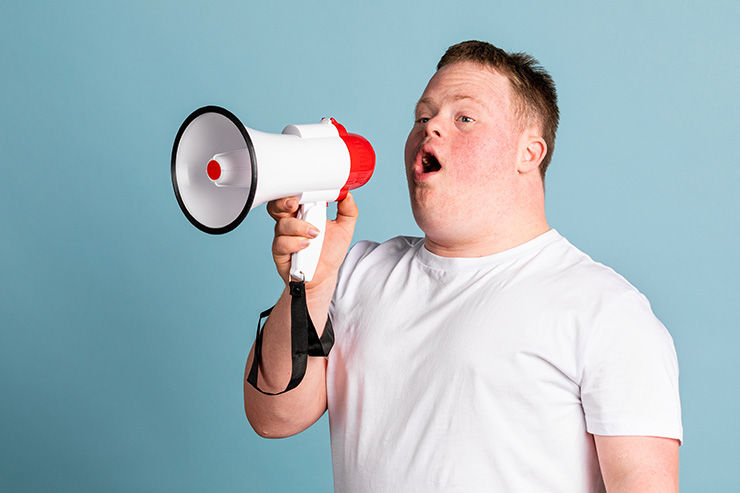Finding Your Voice through NDIS Speech Therapy
- Sep 22, 2025
- 4 min read
Speech Therapy is not just about talking. It’s about connecting.

When most people hear “Speech Pathologist”, they imagine someone teaching kids to say their “r’s” or “s’s” correctly. While that’s part of the job, for many NDIS participants, speech therapy so much more than that. It’s about handing someone the tools to communicate, connect, and feel part of the world around them. And yes — sometimes that happens over Lego, in a park, or even with a talking iPad!
OSCAR Care Group’s passionate team of Speech Pathologists provide therapy to NDIS participants within our Mount Waverley Clinic and surrounding suburbs for home visits. Let’s go through our how an NDIS Speech Pathologist help participants find their voice.
Tailored Speech Therapy to Meet your NDIS goals
A Speech Pathologist helps people of all ages with communication and swallowing challenges. For participants, the work is tailored to individual needs and NDIS goals.
This might include:
helping someone speak more clearly.
supporting non-verbal communication through AAC (augmentative and alternative communication) devices.
building social skills and confidence in conversation.
supporting safe eating and drinking.
Speech Pathologists help people get their message out into the world, in whatever way works best for them. Read more about AAC here.
Common reasons for referral to an Speech Pathologist
If communication or swallowing is impacted, a Speech Pathologist may be part of the support team. Referrals come in for all sorts of reasons.
The most common reasons for a NDIS Participant are:
Children with developmental delays or autism.
Adults recovering from a stroke or brain injury.
People with neurological conditions such as cerebral palsy or Parkinson’s disease.
Individuals who have difficulty with eating, drinking, or swallowing.
And sometimes, the reason is simply that a person isn’t able to say what they want to say — and they need a way to be heard.
How a Speech Pathologist helps NDIS participants
Speech Pathologists can:
Assess communication and swallowing needs.
Provide therapy to build language skills.
Recommend and help set up assistive technology.
Train families, carers, and support workers.
Work alongside other professionals to make sure support is joined up and consistent.
What’s covered under NDIS?
Speech Therapy fall under the Capacity Building Supports within your NDIS plan. NDIS funding often covers speech pathology for conditions such as Autism Spectrum Disorder, Developmental delays, Intellectual disability, Stroke or brain injury, Cerebral palsy, Motor neurone disease and Down syndrome.
Your NDIS Plan may also include funding for communication devices, resources and even parent or carer training. If so, your local Speech Pathologist is here to help with this. Speck to your NDIS representative or plan manager to confirm what’s included in your plan. Your Speech Pathologist can help advocate for what you need for future funding with the NDIS too.
Speech Therapy Travel Costs and funding
Many participants were reporting to the NDIS that travel costs are draining their funding faster than expected for therapy such as Speech, OT, physio and Dietetics. For this reason, the NDIS updated travel claiming rules to help participants get better value from their funding. Meaning travel is capped to 30 minutes for these NDIS therapies as of July 1, 2025.
Home or school visits are more definitely more convenient for families and as Speech therapy happens in a familiar space this is comforting for participants too. However, there are benefits for clinic appointments. There’s a greater access to therapy tools, games and technology. The environment is controlled to suit the needs of the participant – limiting distractions and sensory friendly to their needs.
If you have previously used home visits for therapy and are looking to save funding, clinic appointments may be a go. Speak to our team to find out more about our clinic appointments for Speech Therapy.
Speech Case story: 6-year-old Sam with autism
Please note, name & details have been changed for confidentiality.

Sam was referred to an NDIS Speech Pathologist because he was finding it hard to communicate. He had autism, delayed communication, and struggled with social interactions. He didn’t always respond when people spoke to him and rarely used full sentences. At school, he found group activities overwhelming and often played alone.
Challenges for Sam
Limited verbal language.
Difficulty starting or joining conversations.
Trouble understanding social “rules” (like taking turns in conversation).
Sensory sensitivities that made some environments tricky.
Our Approach in this case
First, our Speech Pathologist got to know Sam — what he loved, what made him feel safe, and what made him shut down. (Spoiler: loud hand dryers were his mortal enemy.)
Speech Therapy sessions were built around his interests — Lego, dinosaurs, and anything with wheels. Together, we used these as tools to build language and social skills. This included introducing visual supports and sentence starters, practising turn-taking games, using assistive communication app on an iPad and coaching his parents on strategies to use at home and at school.
Our Speech Pathologists focused on
Using short, clear sentences.
Offer choices instead of open-ended questions (“Do you want the blue car or the red car?”).
Give extra wait time after asking a question.
Use visuals and gestures alongside words.
The Outcome
After six months, Sam was using more words and short sentences, joining in with simple group games, and showing more interest in talking to others. He still loved dinosaurs — but now he could tell you all about them!
Finding Their Voice through NDIS Speech Therapy
Speech Pathologists working under NDIS aren’t just “speech teachers” — Speech Pathologists are communication partners, cheerleaders, and problem-solvers. Whether the goal is speaking, signing, typing, or pointing, the aim is always connection.
If you or someone you care for is struggling with communication or swallowing, reach out to OSCAR Care Group and our team of Certified Practising Speech Pathologists. The first step could be the start of a whole new conversation.
OSCAR Care Group is a registered NDIS Provider


